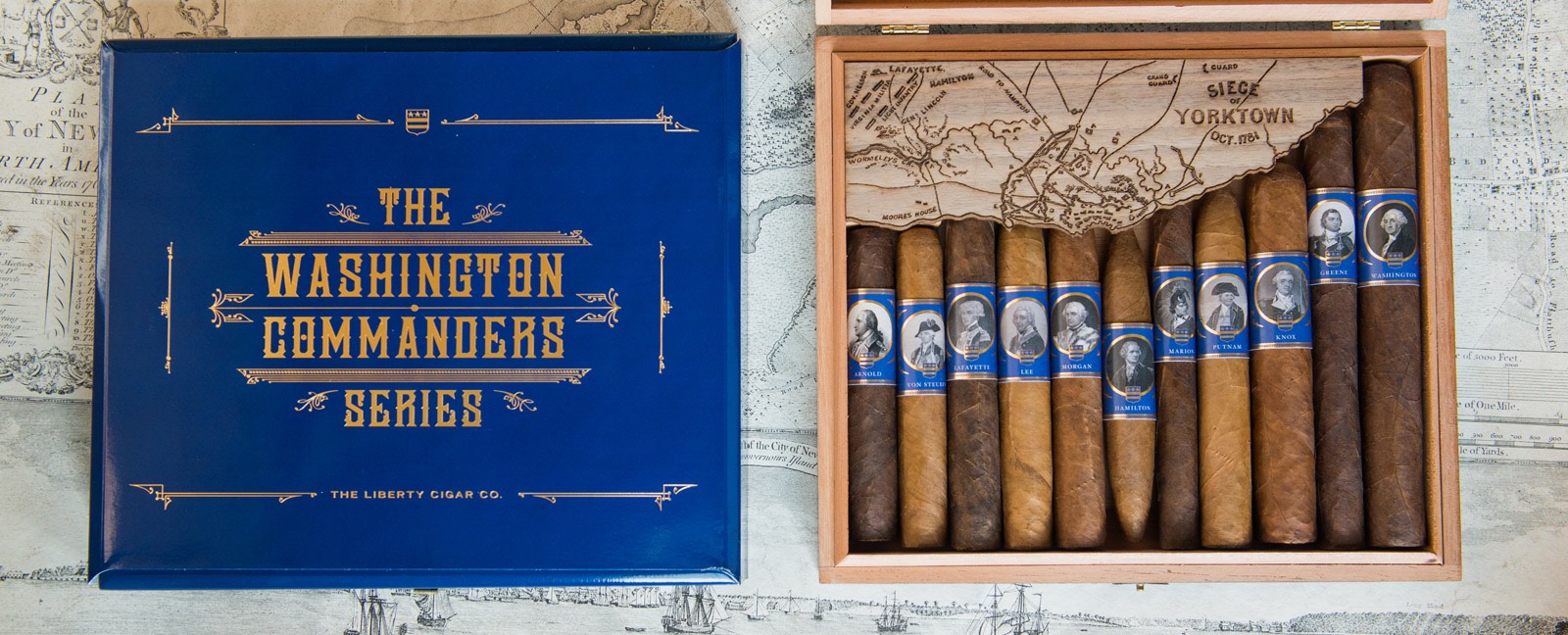Baron Von Steuben
Individual Cigar
$11Add to cart
Vitola
Robusto
Size
48 x 5
Body
Medium
Wrapper
Connecticut
Ecuador
Binder
De Olor
Dominican
Filler
Blend of Four Aged Tobaccos: Cuban seed, Habano (Nicaragua / Honduras), Olor (Cibao Valley) & Ligero / Seco Piloto Cubano (Dominican Republic)
Major General Friedrich Wilhelm Von Steuben
The 18th Century was a period of constant European warfare. England and France fought each other in a succession of international conflicts, building coalitions that always included Germans of various principalities. Those colonial wars culminated in the “Seven Year’s War,” 1756-1763. The constant demand for professional officers created a bull market for soldiers of fortune, mercenaries, and warrior blue-bloods on the lookout for action. Prussia, the most warlike state of all the Germanies, created an officer class that set the standards for armies into the twentieth century. Freddie William Von Steuben was born to the family of a professional Prussian officer (triple redundancy in those days) who raised his young son in the field, with little understanding that the boy would eventually rise to the highest level of command in a nation that did not yet exist and would one day become the paramount western military power in the world.
Friedrich Von Steuben, following in his father’s footsteps, joined the Royal Prussian army at the age of seventeen, fighting first in the War of 1744 and then in a succession of great battles of the Seven Years War, eventually rising to the rank of captain and serving as an aide-de-camp of Frederick the Great. For unknown reasons, Steuben left the army and joined the civil service as overseer of the economic policy of another German prince. His acquaintance with the future French Minister of War led to an introduction to Benjamin Franklin, American minister to France in 1777. Steuben entreated Franklin for a position in the American Army, but could wrangle nothing more than a letter of introduction to the United States Congress.
Armed with that over-effusive document, Steuben’s life took another providential turn as he was introduced to George Washington and joined the American forces wintering in Valley Forge. Von Steuben’s letter from Franklin was considerably embellished regarding his rank and status in the Prussian army, but his flamboyant uniforms and boisterous self-confidence seemed to fit the illusion. The duly impressed General Washington decided to turn the training of the Continental Regulars over to the newly minted “Inspector General.” Friedrich von Steuben did not disappoint.
As new drillmaster of the army, Steuben chose officers from each unit, one hundred twenty in all, and taught them the elocutions of European drill from parade ground to battlefield. Unlike his more elegant French counterparts, Steuben only knew profane English words; in fact he was a master of profanity in multiple languages, and punctuated his German commands with his colorful lexicon, much to the entertainment and mirth of his students. The pedagogical method of teaching the teachers, however, paid huge dividends on the battlefields of the future. The American soldiers learned to use their bayonets for something other than holding candles and digging pits, which stood them in good stead against the British regulars, considered the best at close in combat in the world. Steuben’s drills made the difference at the battles at Stoney Point, Monmouth, and Barren Hill.
His logistical expertise enabled Nathanael Greene to succeed in the Southern Campaign. General Steuben commanded a division at Yorktown and he was witness to the surrender of Lord Cornwallis’s army. He assisted in the demobilization of the army in 1783 and was instrumental, along with Nathanael Greene in the formation of the Society of Cincinnatus, a post-war hereditary association made up of the officers of Washington’s army.
The German hero became an American citizen when he retired from the army in 1784 and settled on Manhattan Island, New York. He became an elder in the German Reformed Church but it is unknown if his salty military language became a thing of the past. Friedrich Wilhelm Von Steuben eventually moved to Oneida County and was buried in a grove in the town of Steuben, which is today a memorial site for the great German General. Steuben symbolizes the nature of the American citizenry, composed of men and women from every nation and tribe, serving in a national cause of liberty, individual and corporate. Providence brought many such men to help win independence and establish the Republic, but very few single-handedly made such a decisive difference on the field of combat as General Friedrich von Steuben.

